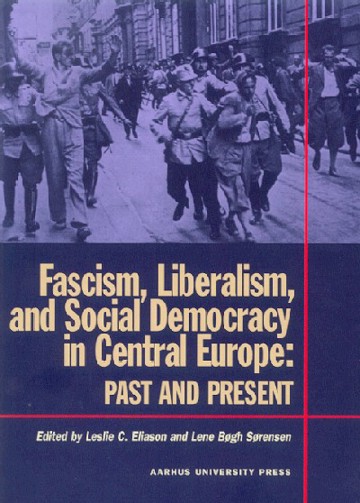
Fascism, Liberalism and Social Democracy in Central Europe
Past and Present
A part of the subject area Social sciences
Out of stock
Edited by
Leslie C. Eliason and
Lene Bøgh Sørensen
With contributions by
György Borsányi,
András Bozóki,
Vladimira Dvorakova,
Leslie C. Eliason,
Reinhold Gärtner,
Jiri Kunc,
László Kürti,
Bill Lomax,
Grigorij Meseznikov,
Curt Sørensen,
Lene Bøgh Sørensen and
Vaclac Zák
More about the book
About the book
The three main currents in twentieth century political thought and practice "fascism, liberalism, and social democracy", emerged not in isolation from one another, but rather as competing and conflicting ideologies connected with particular social strata in different parts of Central Europe. That historical legacy continues to exert influence on popular perceptions and the relationship of contemporary political parties in the postcommunist world.
This volume of essays seeks to place the forces of Neo-Liberalism, Social Democracy, and Neo-Fascism within their historical perspective and their appeal to contemporary constituencies. In addressing the left, center, and right political elements, an international group of authors presents detailed analyses of a myriad of political options, including the skinheads and Neo-Nazis of central Europe, Hungarian Social Democracy, the Civic Forum in the Czech Republic, the party system in Slovakia, the development of FPÖ in Austria, and the Radical right in the Czech Republic. Papers also document the fall and rise of Social Democracy in the Czech Republic, the undermining of Slovak democracy, and Austrian Social Democracy before and after 1945.
Concluding articles reflect on the limitations of Liberalism in Hungary and the ideology and role of socialist parties in the post-socialist milieu of Eastern-Central Europe. This book will be invaluable in providing the historical environment with an understanding of a vibrant, sometimes turbulent political arena.
Table of contents
Lene Bøgh Sørensen & Leslie C. Eliason: Introduction
Curt Sørensen: Historical Roots of Austrian Right Wing Politics: Traditions and Preconditions
Reinhold Gärtner: The Development of FPÖ from 1986 to 1996
Leslie C. Eliason: Austrian Social Democracy at the Crossroads: The Political Consequences of the 1999 Elections
Curt Sørensen: The Labour Movement in the First Austrian Republic: Theory and Praxis of Austromarxism
Vladimira Dvoráková: The Politics of Antipolitics? The Radical Right in the Czech Republic
Jirí Kunc: The Fall and Rise of Social Democracy in the Czech Republic
Václav Zák: Economists or Lawyers? Institutional Foundations of Emerging Democracy: The Czechoslovak Example
András Bozóki: Modernisation and Nationalism: Pathways to Power for ex-Communists in Europe, and the Hungarian Case
György Borsányi: Turning Points of Hungarian Social Democracy
Lene Bøgh Sørensen: Did Hungary Become Fascist?
László Kürti: Skinheads, Extremists and Neo-nazis in East-Central Europe
Bill Lomax: Combatting the Ultra-Right in Hungary: The Limitations of Liberalism
Grigorij Meseznikov: Ideological (Dis)Continuity as a Factor of the Formation of the Party System in Slovakia
About the Authors
Index




